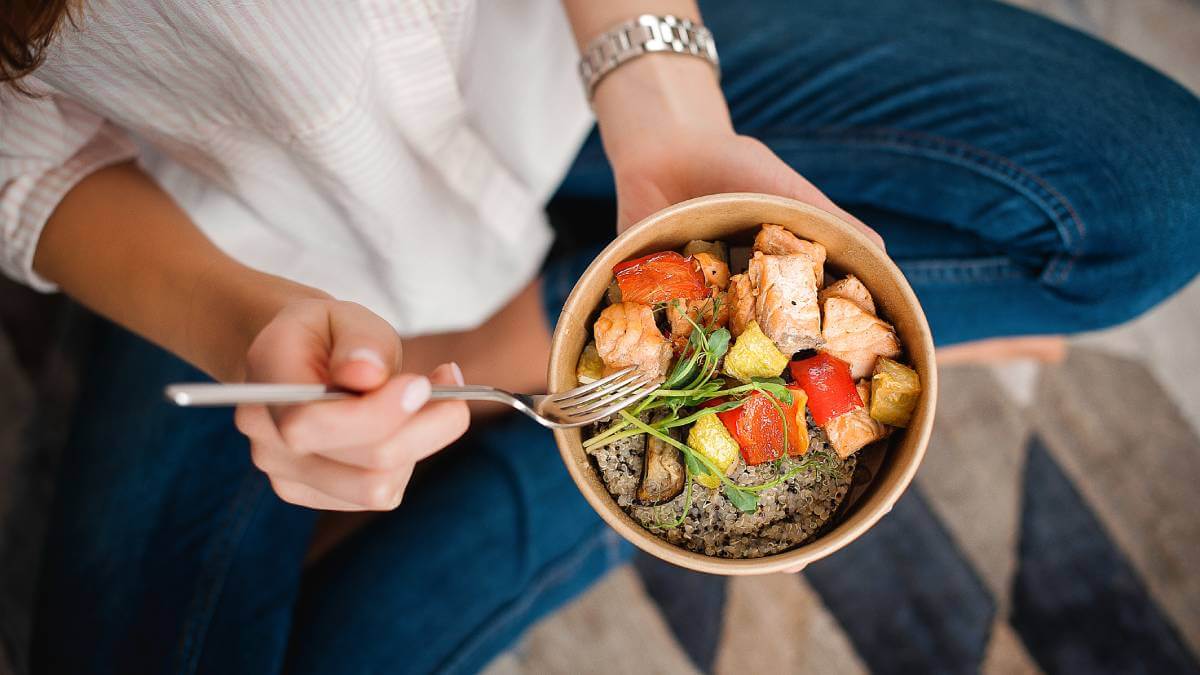The keto diet is indeed a trend. So is intermittent fasting. But how do these and other famous diets affect our teeth?
DentaVox research platform asked 1715 respondents from across the globe to share their opinions on 10 popular myths and facts about diets and teeth. Find out if they match experts’ statements.
1. Intermittent fasting may reduce the risk of cavities: FACT
If you have missed the trend, intermittent fasting is a regimen where you schedule periods of eating and fasting. For example, eating is allowed within an eight-hour period every day, followed by 16 hours of fasting. So, can this diet reduce the risk of cavities? According to 48 per cent of survey respondents, the answer is yes.
And experts agree. The main reason: Not exposing your teeth to food acids for part of the day gives your oral health a break from fighting the cavity-causing bacteria.
2. The vegan diet is always dangerous for oral health: MYTH
From a very young age, children know that milk, cheese and yoghurt are friends to their teeth due to the calcium content. Does that mean vegans – people who do not consume animal products – are destined to have bad oral health? One-fourth of respondents thought so.
But this is a proven myth that might become true only if vegans do not pay attention to the nutrients in the food they eat. In fact, almost all crucial elements your teeth need can be obtained from vegan products, too.
3. The coffee diet can lead to enamel erosion: FACT
The coffee diet became a hit with its advocacy of drinking a cup of black coffee after every meal, as well as before bathing and exercising. The bold promises are: better metabolism, suppressed appetite, and fat-burning effects.
And, although its particular impact on body shape is yet to be scientifically proven, one thing is for sure: drinking large amounts of coffee could lead to enamel erosion (56 per cent of respondents correctly recognised this risk), bad breath and teeth yellowing. Doctors recommend drinking plenty of water if you decide to give this diet a go to protect your teeth from the high acid levels while also keeping you hydrated.
4. The alkaline diet ensures high mouth pH: FACT
More than half of survey participants recognise the alkaline diet as helpful in improving pH levels. Quick recap: the pH level measures your acid/alkaline balance and it should be 6.2-7.6 to keep your teeth and gums healthy.
The alkaline diet restricts acidic foods such as grains, sugar, dairy, fish and meats, and relies on highly alkaline foods (pH>7) such as fresh fruits and vegies, beans, lentils, nuts and oils.
5. Diet drinks are better for teeth: MYTH
A tale as old as time … No, diet coke is no better than normal coke. But it seems the majority of respondents (47 per cent) still believe this myth.
In fact, it’s not only sugar that damages your teeth. Fizzy drinks are highly acidic, regardless of the sweetener used. Over time, sugar-free drinks can cause just as much tooth erosion and cavities as sugary drinks.
6. Fast food has a negative impact on teeth: FACT
Fast food’s negative influence on the entire body has been widely discussed with diseases such as diabetes type 2 and heart attack being scientifically linked to fast-food consumption.
But does that have anything to do with oral health? According to 65 per cent of survey participants, the fast-food diet harms teeth as well. Experts certainly agree.
7. A gluten-free diet helps with absorbing calcium better: MYTH
There might be other good things about going gluten-free but absorbing calcium better is not one of them. The majority of survey participants (53 per cent) are not aware of that.
Research shows that coeliac disease, which requires a 100 per cent gluten-free diet, is often accompanied by calcium deficiency. In the case of non-coeliac gluten sensitivity, absorption of calcium is not compromised but foods consumed may be low in calcium. As a result, those people should pay closer attention to obtaining the right amount of calcium and other nutrients through their food or supplements.
8. The paleo diet is related to sticky teeth: FACT
The paleo diet promotes eating anything that our hunter-gatherer ancestors ate. It is predominantly wholefood and plant-based but allows for lean meats and fish as well. This diet restricts sugary and starchy foods, which makes it good for your teeth’s health.
One potentially bad thing about it is that limiting grains usually leads to eating more fruits which, therefore, can cause sticky teeth. A fact that is not so popular, so unsurprisingly, respondents’ answers are diffused. Make sure you consume large amounts of water and maintain good oral hygiene to avoid problems.
9. Olive oil prevents bacteria from attaching to teeth: FACT
Almost 60 per cent of survey participants correctly recognised the feature of olive oil – very prominent in the Mediterranean diet – to hinder bacteria from sticking to your teeth.
Researchers at the University of Madrid discovered olive oil’s antibacterial oleuropein when they looked into the reasons why people who lived near olive oil-manufacturing plants had low incidences of gum disease.
10. The ketogenic diet may lead to bad breath: FACT
According to 42 per cent of respondents, the popular keto diet leads to halitosis (or bad breath). And this is a fact. Let’s look at the reasons.
The ketogenic diet cuts down on carbohydrates and thus, the body burns fat instead of carbs. While on a keto diet, the body enters an extreme fat-burning mode that causes bad breath. Drinking plenty of water or chewing gum could help you deal with the issue temporarily.
What diets have your tried and how have they affected your teeth? Share your experiences in the comments section below.
Also read: Warning signs your immune system is run down

